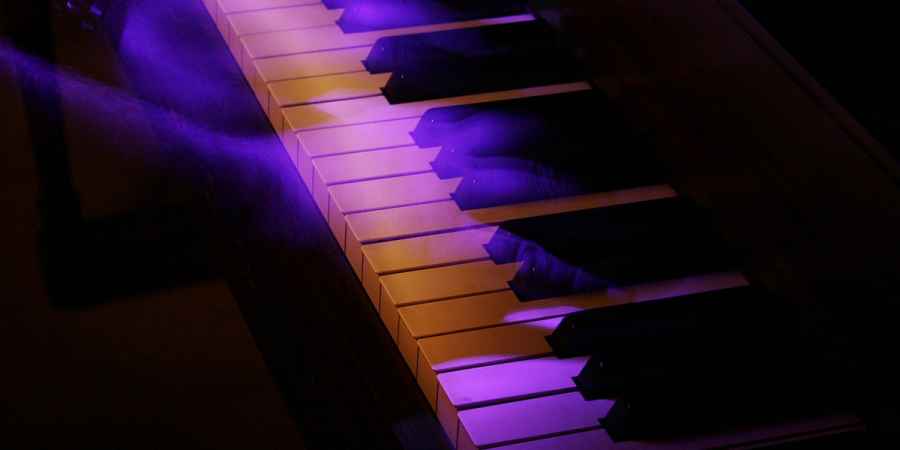Intelligent Hauntings: When Spirits Interact With The Living

Photo: © John VanKleeck
In the world of paranormal investigation, the term "intelligent hauntings" refers to a type of ghostly activity that appears to demonstrate awareness and the ability to interact with the living environment in a seemingly thoughtful or responsive manner. This contrasts with residual hauntings, which are more like recordings of events that replay over and over with no interaction or awareness of the present.
Accounts of intelligent hauntings span centuries and cultures, suggesting a consistency in human experiences of the paranormal that transcends social and historical contexts. This widespread nature of reports provides some support to the argument that such phenomena are the result of misinterpretations of mundane phenomena. The emotional and psychological impact on those who believe they have experienced intelligent hauntings firsthand should not be ignored. These experiences can range from awe-inspiring to deeply unsettling, affecting individuals' beliefs about the afterlife and their own mortality.
Intelligent hauntings are of particular interest to ghost hunters because they suggest that a spirit or ghost retains some level of consciousness or character after death, allowing it to communicate, move objects, or make noises in response to questions or actions from the living.
Intelligent entities are believed to be behind the triggers of various ghost hunting gadgets. For instance, it is believed that spirits are able to manipulate or disrupt the electromagnetic fields detected by EMF meters, causing the meters to spike. The logic is that an intelligent entity might use this method to signal its presence.
Similarly, motion sensors and infrared cameras are deployed to capture movements or figures that suggest a presence moving with purpose or intent, something that would be characteristic of an intelligent haunting.
Intelligent hauntings are also said to produce Electronic Voice Phenomena (EVPs), which are mysterious ghostly voices or sounds heard during the playback of audio recordings, despite the fact they were not audible to those present at the time of recording. It is believed by some investigators that this is an example of an intelligent spirit trying to communicate.
Identifying intelligent hauntings can be problematic, the difficulty arises from attempting to categorise phenomena that are, by nature, elusive, generally unseen, and not fully understood. It relies heavily on theoretical frameworks built on mostly anecdotal evidence and personal experiences, which are subjective.
Intelligent hauntings are characterised by interactions that suggest awareness and purpose. For example, responses to questions heard through ghost hunting devices, manipulation of objects, or physical phenomena that seem to react to the presence or actions of the living. These occurrences imply that the entity is not only aware of its surroundings but can also interact with them in a meaningful way.
Although these characteristics are fairly well defined and agreed upon, paranormal phenomena are notoriously difficult to measure or record with consistency and reliability. What one investigator might interpret as an intelligent response, another might see as a coincidental occurrence or even attribute to a residual haunting's unpredictable nature. Investigators often fail to reproduce intelligent responses, suggesting that the response was random, coincidental, or misattributed.
When dealing with the unseen, it's also impossible to rule out the possibility that an intelligent haunting might be masquerading as a residual one. This suggestion implies a level of deceit or strategy on the part of the spirit, which further complicates the task of categorisation.
The distinction between intelligent hauntings and poltergeists is also problematic. Poltergeists, known for their physical disturbances such as moving objects, loud noises, and sometimes physical interaction with individuals, often blur the lines between themselves and what are traditionally considered intelligent hauntings.
This line is further blurred when we consider cases like the Enfield Poltergeist, which exhibited characteristics of both categories. Not only did those at the centre of the Enfield case witness classic poltergeist activity, but the entity is also said to have communicated with the living through knocking and voices projected through one of the family members. Communication could suggest a level of awareness or intelligence.
Poltergeist hauntings are often said to be centred around a particular individual rather than a location, as with an intelligent haunting. However, there are plenty of documented examples of reports of poltergeist activity in locations where there is no one who would serve as the focus of the haunting.
This problem of accurately distinguishing between intelligent hauntings and other entities raises important questions about the intentions and personalities of spirits, suggesting that, much like the living, the dead may exhibit a wide range of behaviours and motivations.
A dilemma concerning intelligent hauntings is how the consciousness, personality, memories, and cognitive abilities of a deceased person can persist outside the body. At the heart of the issue is the question of where, or in what form, the essential aspects of a person are stored or continue to exist after physical death. If the mind (or soul) is independent of the physical body, it could potentially continue to exist and exhibit intelligence and personality after the body's death.
Scientific views often tie consciousness and personality closely to the physical brain, which means that once the brain ceases to function at death, so too should the phenomena associated with consciousness. Yet, reports of intelligent hauntings suggest the possibility of consciousness existing independently of the physical body and capable of interaction and communication.
The counter to this is that consciousness might not be solely a product of the brain but instead a fundamental aspect of the universe, similar to space, time, and matter. In this view, consciousness could exist in a non-physical dimension or state, with the brain acting more as a receiver or interpreter rather than the sole originator of consciousness.
Skeptics argue that there is a lack of empirical evidence for intelligent hauntings and that they can often be explained by natural or psychological phenomena. Sounds, movements, and even visual apparitions can be attributed to factors such as electromagnetic fields, infrasound, pareidolia (seeing patterns or faces in random objects), and the power of suggestion.
Psychological factors, such as the expectation effect, where individuals see what they expect or want to see, play a significant role in intelligent haunting experiences. Social and cultural influences also shape how individuals interpret and report experiences of the paranormal.
Despite these critiques, many remain fascinated by the possibility of intelligent hauntings, driven by personal experiences, anecdotal evidence, and a human curiosity about what happens after we die. While the existence of intelligent hauntings remains a matter of belief and debate, the concept challenges our understanding of life, death, and the afterlife, providing fertile ground for exploration in paranormal research, literature, and entertainment.
More Essential Parapsychology View All
Related Content
Daily Horoscopes
You May Also Like
























